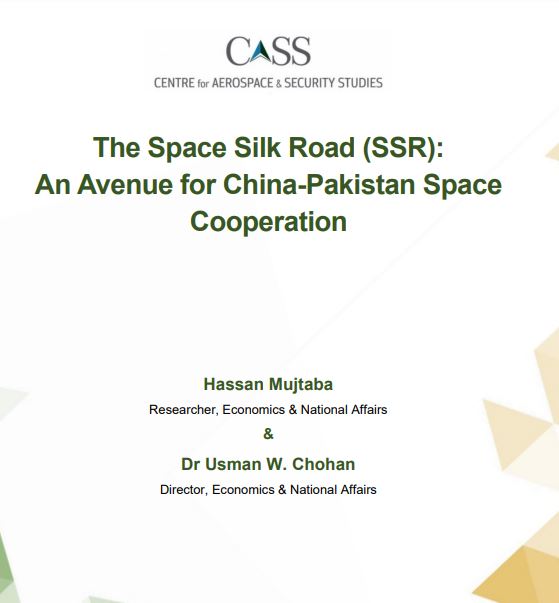Abstract
The Belt and Road Initiative (BRI) is an ambitious Chinese undertaking that is simultaneously a surplus recycling mechanism and a multi-stage economic stimulus program. In recent years, the scope of BRI has expanded to include digital and space silk roads beside the original terrestrial and maritime silk roads. This paper is an attempt to analyze the benefits of the Space Silk Road (SSR) in particular, both to Pakistan and to the region in general. This is framed as an avenue of future SinoPakistan space cooperation. While the future benefits are numerous, some short-term benefits include spinoffs from innovation, high-quality research, promotion of STEM education, precision farming, weather monitoring, and better defense systems. However, to fully benefit from SSR, both the Chinese and Pakistani governments need to bring the private sector on board and cultivate public-private space sector cooperation so that both partners can exploit the benefits emanating from ‘critical path redundancy’ and ‘interoperability’.





